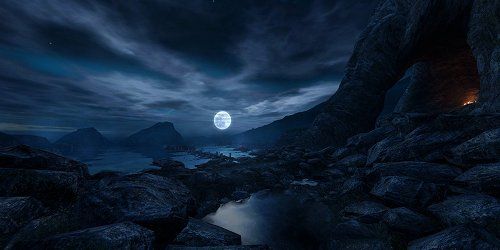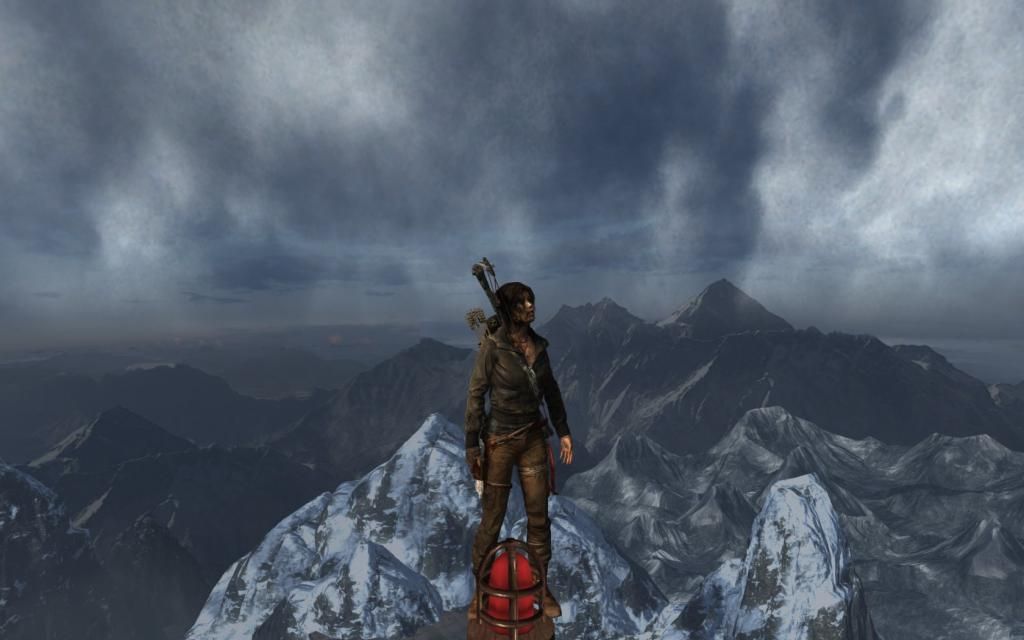We all wash up alone. In different places, on different shores, we find ourselves free of the constant turmoil and chaos of our pasts. We become so used to clinging on for dear life that it seems normal, tossed around on the tides of loneliness, stress, trauma, adolescence. We share a common past of turmoil and disruption, an early life defined by what we don’t understand, what we don’t know. A life mapped out not by what we have done but by what happens, or sometimes is done, to us.
The past is what we all run from. The future begins the moment we wash up on that shore.

Bedraggled, hurt, bleeding and angry we all stumble out of the waves and up the beach. Some of us want to know what happened, some of us want vengeance for the wounds that drove us here but most of us are just delighted that the storm has passed and that, at last, we’ve found dry land.
And what land it is. A place that doesn’t just welcome us but seems to understand us, seems to sing our songs and laugh at our jokes. For the first few weeks we’re amazed that we could have been this lucky, escaped to somewhere this perfect. Then we stop thinking about the escape and start thinking about the future. That moment, difficult to notice as it always is, is the moment we stop running. It’s the moment we realize we’re home.
As time goes by and we settle down, we find that other people were washed ashore on this spit of land too. We share stories, find common ground in old wounds and new perspectives and before too long we form friendships and partnerships that will define the rest of our lives. There is no point in a person’s history more thrilling than the moment they look out across their new home and map it not into obscurity but into identity. This is the place youi are, this is the place you will be. This is how you will live in it.
Of course, we don’t settle. That’s not what humans do. The same drive that pushed the American settlers so far west they had to go up drives us all. We explore our new home, find new people, places resources and, even after years of exploration, that still manage to surprise us. It’s an untidy business and we all find things that we dislike or that shock us. Sometimes we mark that area on the map as somewhere to avoid. Sometimes we go back a few years later and wonder what the problem ever was.
As we explore, we make two discoveries, both of which will change our lives. The first is that this place, beautiful as it is, constantly evolving as it does, is finite. There are coasts, just like the one we washed up on. There are storms, sometimes out on the horizon and sometimes close in, and there are always new people washing ashore. Sometimes we recognize ourselves in their jagged shock and panicked relief. Sometimes we can help them, and sometimes they have to find their way alone. Knowing the difference between the two, being able to spot it, will be one of the greatest challenges of the rest of our lives.
The second discovery is more profound. We all have a day where we climb as high as we can, look out across our island and realize something; it’s one of millions. A vast, flat sound stretches out across the world as far as the eye can see and for every point on the compass there are a hundred islands. When we look closely we see that there are people on those islands too. Exploring, climbing, realising that the other islands exist.
We all come in alone.
But that’s the last time.

As we gaze out across the archipelago, we realize just how fluid it is and just how long it has been in existence. We see ghosts of bridges between islands, boats out in the straits and, from time to time, new land appearing as the mist clears. This is an ecosystem, one as rich and vibrant as any you’ve encountered before and one just as loaded with opportunity and fraught with danger.
The opportunity comes from finding likeminded people to help you explore. The danger comes from not seeking out anyone else. Island life, for all its peace, can breed insularity. Some of those bridges, you notice, were burnt. Some of the islands, close together as they are, do not talk to one another. Other snipe, or steal. Others still watch the newcomers struggle ashore and, instead of asking if they can help, critique their swimming or complain about how crowded the island is becoming. These people, you note, never actually do anything besides complain. For a while, you find their lifestyle an attractive prospect; sitting in comfort, fighting imaginary wars for a high ground all of them can see but none can reach. It looks simple. Relaxing.
Solitary.
But there is always work to be done. Always new places to go, new things to find and best of all, new people to tell about what you’ve found. That’s the glue that holds this society made of survivors together; the expansion of joy, the sharing of enthusiasm. And as you sit, at night, swapping stories about your travels with your friends, you’ll find yourself gazing out across the sea to the next island over. You can hear music and laughter coming from there and a dozen other places, see brightly coloured lights on the boats in the straits. Distantly, you see fireworks, wonder how they made them and realize that, tomorrow, you can go and ask them if you want to. Better still, you can take your friends with you.
We are citizens of the Archipelago of Enthusiasm, united in a common love for exploration and the need to discover something new and tell people about it. We all wash up alone but the moment we do is also the moment we come home.
Happy new year, everyone. I’ll see you in 2015.
(Images taken from the excellent Tomb Raider game released in 2013 and the remarkable Dear Esther. Both absolutely worth your time.)
